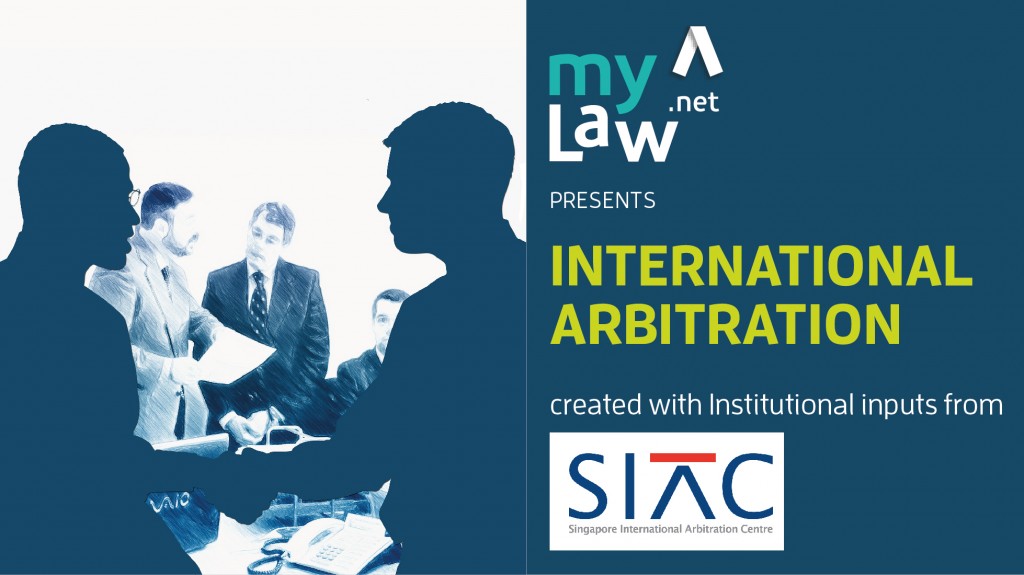 A few months ago (May 28, 2014), in Reliance Industries Limited and Another v. Union of India, the Supreme Court of India elaborated on the law laid by it in relation to the jurisdiction of Indian courts over foreign-seated arbitrations in the 2012 decision in Bharat Aluminium v. Kaiser Aluminium, (2012) 9 SCC 552.
A few months ago (May 28, 2014), in Reliance Industries Limited and Another v. Union of India, the Supreme Court of India elaborated on the law laid by it in relation to the jurisdiction of Indian courts over foreign-seated arbitrations in the 2012 decision in Bharat Aluminium v. Kaiser Aluminium, (2012) 9 SCC 552.
Without getting into the substantive details, the dispute and arbitration arose out of two production-sharing contracts between the parties. While Indian law governed the agreement, the arbitration clause provided for arbitration seated in London and English law expressly governed the arbitration clause (or agreement). Over the course of arbitration proceedings, the Union of India challenged the arbitrability of four issues. This was resisted by Reliance, and ultimately, the three-member arbitral tribunal decided in favour of Reliance through an award on September 12, 2012. This award of the tribunal (on arbitrability) was challenged under Section 34 of the Indian Arbitration and Conciliation Act, 1996 (“Act”) by the Union of India before the Delhi High Court.
Surprisingly, the Delhi High Court accepted its jurisdiction to hear the Section 34 set-aside application even though the award in question was passed in a foreign-seated arbitration. The reasoning of the High Court in accepting jurisdiction is suspect; the High Court seemed to suggest that the law of the seat only governed the conduct of arbitration, not the issues of arbitrability or public policy, which are also subject to the law of the contract, that is, Indian law. The High Court also took into account the fact that the parties had not expressly excluded Part 1 of the Act. Since the arbitration agreement pre-dated the Bharat Aluminium decision (it was a 1994 agreement), the fact that Part 1 was not excluded, was taken to imply that Indian courts had the jurisdiction to set aside the foreign award under Section 34 (following the logic of the Supreme Court in Bhatia International v. Bulk Trading S.A., (2002) 4 SCC 105).
Reliance filed an appeal before the Supreme Court, and the Supreme Court overruled the Delhi High Court’s judgment on its jurisdiction to hear the Section 34 application. The Supreme Court essentially went back to the post-Bhatia, pre-Bharat Aluminium line of cases that dealt with what constituted an effective ‘exclusion’ of Part 1 of the Act under Bhatia International. One of these cases was Yograj Infrastructure Limited v. Ssang Yong Engineering and Construction Company Limited, (2011) 9 SCC 735, where the Supreme Court had held that the choice of a foreign seat (in this case, Singapore) amounted to an ‘implied exclusion’ of the Part 1 of the Indian Act, and that accordingly, Indian courts had no jurisdiction in such foreign seated arbitrations. Another pre-BALCO decision the Supreme Court referred to in Reliance was Videocon Industries v. Union of India, (2011) 6 SCC 161, in which the Supreme Court had held that a foreign law governing the arbitration agreement (as well as a foreign seat) amounted to an exclusion of Part I of the Indian Act. In the present case, as there was a choice of an English seat and because English law was the law governing the arbitration agreement, Part 1 was clearly excluded. Further, the Supreme Court also made it clear that the law of the seat did not just govern the conduct of the arbitration; it meant that the courts at the seat had exclusive supervisory jurisdiction to hear challenges to awards based on arbitrability and public policy. Further, the Supreme Court reiterated its ruling in Enercon that recognised the separability principle.
All in all, this decision of the Supreme Court is very much in line with the recent ‘pro-arbitration’ trend in the Indian courts. The ‘pro arbitration’ trend is reflective of a larger strategy of the present Indian government to convert India into a global arbitration hub (2014 BJP Manifesto). On the flip side, this decision does not do much to clarify the position on pre-BALCO (that is, before September 6, 2012) arbitration agreements that provide for a foreign seat: on the one hand, you have the Yograj decision which seemed to (correctly) indicate that the providing for a foreign seat was enough to exclude the application of Part 1 and Section 34, and on the other, the Videocon decision, which relied on the presence of a foreign law governing the arbitration agreement to imply the exclusion of Part 1. The Reliance case could have been the perfect opportunity for the Supreme Court to clarify that a foreign seat alone is sufficient to exclude Part 1; unfortunately, the Supreme Court did not bite.
(Sindhu Sivakumar is part of the faculty on myLaw.net.)


One reply on “Pre-BALCO arbitration agreements with foreign seat: SC decision does little to improve clarity on Part 1 exclusion”
What is this post?
Like LoL
Facts, link to bjp manifesto, and….
For quite sometime, given the title, I tried to look if it is continued on page 2-3-4. But there’s no more than some really casual “ipse dixit” to substitute reason.
Cmon sindhu, you can do better. And for myLaw, publishing such quality material, with fancy title, would hardly help.
Get better… pretty plz